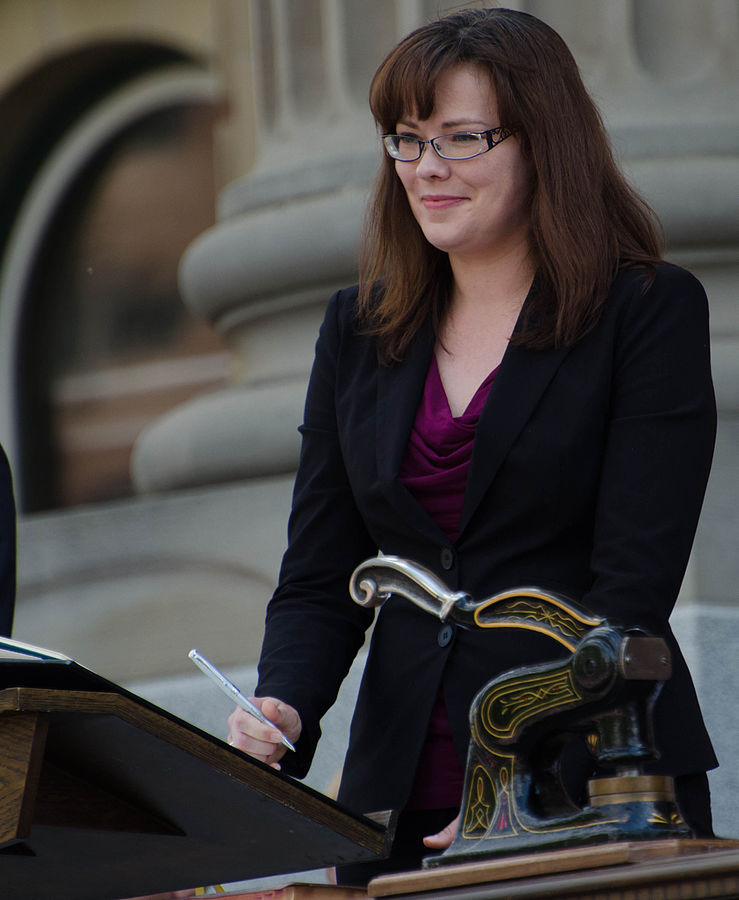
EDMONTON — The Alberta government plans to control the online sale of legalized marijuana but will leave over-the-counter sales to private operators.
Justice Minister Kathleen Ganley introduced the rules in proposed legislation Thursday, but details on how sales would work have yet to be determined.
“This is a major shift for our province and one that has to be made very quickly with a lot of complex questions,” said Ganley.
“We believe this plan represents what the majority of Albertans want to see.”
There are still questions about how online weed would be delivered.
Private cannabis stores would have to be physically separate from stores that sell alcohol, tobacco or pharmaceuticals — but how that would be legally defined hasn’t been determined.
“They do have to be in a completely separate premises,” said Ganley, but added that this could include businesses that are separate but part of the same structure, such as in a strip mall.
Ganley said the government will finalize those decisions by early next year.
The stores would not be allowed to sell anything but cannabis and cannabis-related products.
Marijuana distribution would be run by the Alberta Gaming and Liquor Commission and there would be ways to ensure that minors couldn’t buy weed off the internet.
How many cannabis stores would be allowed would be up to the commission, but retailers would have to undergo background checks. All staff would have to be 18 or older.
Jeff Mooij, who works for a medical marijuana clinic and wants to become a bricks and mortar retailer, said he expects demand will quickly outstrip supply.
“(The lineups) will be huge, there’s no doubt about it,” he said, saying other jurisdictions in the United States, such as Colorado, have had marijuana shortages. “The feds need to step up this (growing) process.”
Mooij suggested Alberta will need well over 200 licensed producers. He said there are 73 right now that are licensed and only half of them are producing product.
Ken Kobly of the Alberta Chambers of Commerce said the proposed model is the best way to balance private enterprise with public safety.
“The primary concern is obviously ensuring only those (legally) permitted to purchase cannabis are able to do so,” said Kobly.
The bill also proposes legislation for initiatives announced last month by Ganley in a draft cannabis framework:
— Minimum age to buy and use cannabis is to be 18, the same as alcohol.
— Maximum public possession limit is to be 30 grams.
— Zero tolerance for youth possessing pot.
— Maximum of four pot plants per household.
— Smoking and vaping cannabis banned wherever tobacco use is banned.
— No cannabis allowed on hospital grounds, schools and anywhere kids gather such as playgrounds, splash parks and sports fields.
Provinces and territories have been working on rules for cannabis since the federal government announced last spring that it will legalize recreational use of marijuana by July 1.
Quebec is taking a different approach with legislation that proposes that all cannabis cultivated in the province must be sold by the government, through a subsidiary of the provincially run liquor board. It would also be illegal to cultivate cannabis for personal or commercial use, unless authorized by the government.
Ottawa will be in charge of overall health issues and regulations, while provinces will distribute and sell cannabis while keeping roads, schools and workplaces safe.
The provinces and Ottawa are still working on who should get what percentage of taxes.
The federal government is revising and toughening up Criminal Code charges for anyone caught driving impaired while under the influence of cannabis or a mix of cannabis and alcohol.
Earlier this week, Alberta announced it will add its own administrative penalties, including zero tolerance on cannabis for new drivers.
The province is still working on updating workplace rules to address the risk of cannabis impairment on the job.